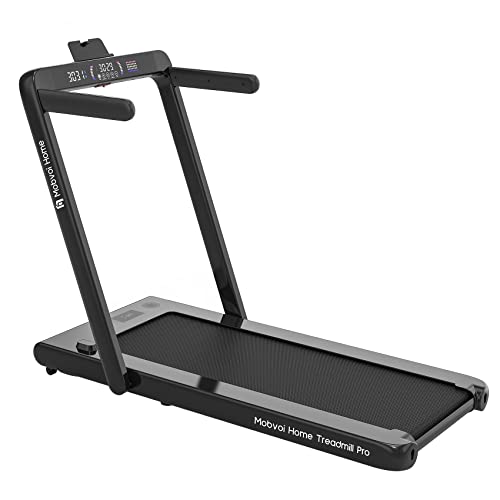Treadmills: A Comprehensive Guide to Understanding Their Functionality, Benefits, and Appropriate Selection
Introduction
Treadmills have ended up being a staple in contemporary physical fitness regimens, both in homes and fitness centers worldwide. They provide a convenient and efficient method to maintain cardiovascular health, increase endurance, and assist in weight management. This post explores the different kinds of treadmills, their benefits, features to think about when purchasing, and some FAQs to assist users in making notified choices.
Kinds of Treadmills
When it pertains to choosing a treadmill, it is crucial to understand the various types offered in the market. Here are the main classifications:
1. Handbook Treadmills
- Mechanism: These treadmills have a basic design and count on the user's efforts to move the belt.
- Pros: More affordable, quieter operation, no electrical energy needed.
- Cons: Limited features, might not offer the exact same series of exercise strength.
2. Motorized Treadmills
- Mechanism: Powered by a motor that drives the belt, enabling users to walk or perform at a set rate.
- Pros: Greater range of speeds and inclines, equipped with numerous functions such as heart rate displays and workout programs.
- Cons: More costly and may require more upkeep.
3. Folding Treadmills
- Mechanism: Designed for those with limited space, these treadmills can be folded for easy storage.
- Pros: Space-saving, frequently motorized, flexible functions.
- Cons: May be less durable than non-folding designs.
4. Industrial Treadmills
- Mechanism: High-quality machines designed for use in fitness centers and physical fitness centers.
- Pros: Built to withstand heavy usage, advanced functions, typically consist of service warranties.
- Cons: Pricey and not perfect for home usage due to size.
5. Curved Treadmills
- Mechanism: A distinct design that allows users to move the belt utilizing their own energy.
- Pros: Offers a more natural running experience, promotes better running form.
- Cons: More pricey and can be noisier.
| Treadmill Type | Pros | Cons |
|---|---|---|
| Manual | Economical, no electrical energy needed | Minimal functions |
| Motorized | Variety of speeds, advanced functions | Maintenance required |
| Folding | Space-saving, typically motorized | May lack sturdiness |
| Business | Constructed to last, professional-grade functions | Costly |
| Curved | Natural running experience, promotes great kind | Higher rate |
Benefits of Using Treadmills
Treadmills offer numerous advantages that can add to one's total fitness and health objectives. A few of these advantages consist of:
- Convenient Workouts: Treadmills allow users to work out inside your home regardless of weather.
- Cardiovascular Health: Regular use can enhance heart health by increasing stamina and promoting healthy blood circulation.
- Weight Management: Effective for burning calories, which aids in weight-loss and management.
- Adjustable Workouts: Users can manage speed, slope, and duration to develop customized exercise experiences.
- Security: Treadmills provide a foreseeable surface area, decreasing the danger of falls compared to outdoor running.
- Multifunctional: Many treadmills featured functions like heart rate screens, workout programs, and even home entertainment systems.
Selecting the Right Treadmill
When picking a treadmill, prospective buyers need to consider numerous essential aspects:
Features to Consider:
- Motor Power: Typically determined in horse power (HP), a motor strength of a minimum of 2.5 HP is advised for major runners.
- Belt Size: A longer and broader belt accommodates different stride lengths, providing comfort throughout workouts.
- Slope Settings: Adjustable slope functions simulate outside hill running and can increase exercise strength.
- Weight Capacity: Ensure the treadmill can support the user's weight for safety and durability.
- Console Features: Look for user-friendly dashboards, workout programs, and Bluetooth compatibility for streaming music or other functions.
Budget plan Considerations
- Under ₤ 500: Entry-level manual treadmills ideal for casual walkers.
- ₤ 500 - ₤ 1,500: Mid-range motorized treadmills that offer more features and better toughness.
- ₤ 1,500 - ₤ 3,000: High-end models with sophisticated innovation, larger motors, and longer service warranties.
- Over ₤ 3,000: Commercial-grade treadmills perfect for regular use in fitness centers or training centers.
Frequently Asked Questions (FAQs)
1. How frequently should I utilize a treadmill?
It is recommended to utilize a treadmill at least three to five times a week, integrating various intensity levels for best results.
2. Can I slim down by using a treadmill?
Yes, consistent use of a treadmill can contribute to weight reduction, specifically when integrated with a balanced diet plan and strength training.
3. What is the best speed to stroll on a treadmill for newbies?
A speed of 3 to 4 miles per hour is an ideal range for newbies. It's necessary to start sluggish and slowly increase speed as comfort and stamina enhance.
4. Do I require to utilize a treadmill if I already run outdoors?
Using a treadmill can supply extra advantages, such as regulated environments and differed workouts (incline, intervals) that are not constantly possible outdoors.
5. How do elroyestep.top keep my treadmill?
Regular maintenance includes lubricating the belt, cleaning the deck and console, and examining the motor for optimum efficiency.
Treadmills are important tools for those aiming to improve their physical fitness levels in a regulated and hassle-free way. With different types offered, comprehending their features and advantages is vital for making an informed purchase. By considering personal exercise requirements, area accessibility, and budget plan constraints, individuals can discover the most appropriate treadmill that fits their way of life. Integrating treadmill workouts into a balanced physical fitness routine can cause enhanced health outcomes and an enjoyable exercise experience.

